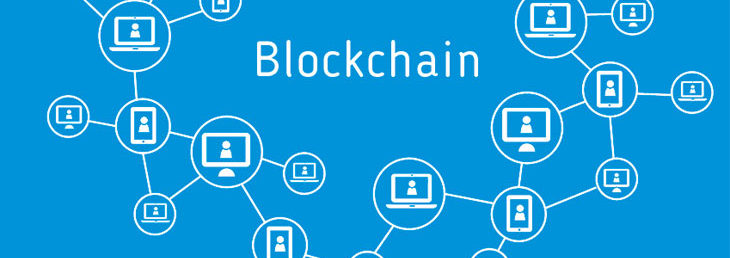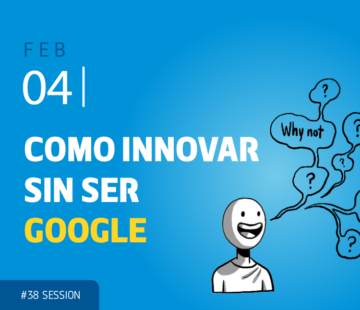#30 co-session: The opportunities of the Blockchains

We held our 30th Co-Session on the day that Bitcoin monopolized media headlines for being close to reaching an exchange value of 10,000 dollars. It is therefore appropriate that we dedicated the day to Blockchain, the technology on which this and other virtual currencies are based. But it is not just the potential transformation of what we have understood as money for centuries that provides a focus for our attention. Over recent years, Blockchain technology has been on everyone’s lips because of the highly revolutionary nature it can represent to the most diverse sectors. It has the potential to transform the future, and many experts predict that it may reach a level of disruption similar to that of the Internet itself over the last couple of decades.
We dedicated this #30 Co-Session to the opportunities offered by Blockchain, but we did so trying to flee from the “hype”, not always based on proven realities, generated recently by this technology. For this reason, we focused on trying to understand the way it works a little better, to get to know first-hand cases of practical applications that are already being developed and, above all, to be able to determine and reflect on the challenges and opportunities that Blockchain can represent for companies that are members of Co-Society and the sectors in which they carry out their activity.
Blockchain: State of the art
But what exactly is Blockchain? This “chain of blocks” can be described as a digital ledger in which all transactions made between two parties can be recorded, being permanently and constantly verifiable. Alfons Cornella, founder of Co-Society, started off the day’s series of presentations with an introduction to the concept of Blockchain, the way it works, and its potential impact on business. He also described a state of the art of this technology, including examples of some of the most important initiatives that are currently being carried out in sectors such as retail, logistics, insurance, energy, and banking, based on its use.Blockchain was rightly defined by “The Economist” as the “trust machine”. Cornella insisted on this as a key factor to understanding the potential implications of a database technology, but one that has the important addition of new and determining factors. These include a distributed and decentralised nature that removes the need for third-party intermediation to ensure the trust between the parties needed in any transaction. Previous revolutions solved the problems of significant deficiencies, such as the possibility of transmitting knowledge (printing), generating force (the engine) or interacting at a distance (internet). For many, the important mission of solving the growing problem of trust in the new digital world in which we are already fully immersed is now up to Blockchain and the new initiatives that may arise on its technological base.
Blockchain in the energy sector
Blockchain can represent, for example, the solution with which to overcome some of the barriers that impede major transformations in the energy generation and distribution sector. As Oriol Pujoldevall of the Energy Web Foundation (EWF) described, electricity systems and grids are changing. New generation points are appearing. The idea that connecting to a centralized distribution network may be the only way to supply energy is becoming obsolete. In fact, these alternatives are starting to become cheaper. More empowered consumers/prosumers are starting to demand more opportunities to decide on the origin of the energy they consume or even the destination of the electricity they can produce.Blockchain’s ability to transmit peer-to-peer (P2P) electronic value without the need for intermediaries offers a response to cybersecurity problems, transaction costs, and the type of intelligent contracts for an Internet of Things that would make it possible to create energy networks that are more decentralized and have a much higher number of participants. With the aim of accelerating the adoption of Blockchain in the energy industry, the Energy Web Foundation has identified over 180 possible applications of this technology for this sector. These include P2P energy trading, the easier and faster generation of certificates of origin, and the use of smart contracts to instantly materialize purchase agreements and payments for energy consumption on demand.
Cryptoeconomics
Blockchain can become the enabler of the change towards a true digital economy. Montse Guardia, director of Digital Services Delivery at Banco Sabadell, was charged with explaining how and why. The key lies in two important concepts linked to this technology: “tokenization” and smart contracts. Blockchain allows any object or physical asset to be “tokenized”, or in other words, uniquely granted with a unique digital, and therefore virtual, identifier. This makes it possible to have an “Internet of Value” that can facilitate the smooth exchange of these assets in a way that is completely transparent for users.
Smart contracts can also be applied to this new Internet of Value. These involve lines of code that can digitally, and in a simple and automatic way, implement business rules agreed by the parties on those value transactions, executing certain actions if certain conditions that have been previously established are in place. For Montse Guardia, this type of element poses a scenario of absolute social and economic innovation in which cryptocurrencies that work independently of monetary policies or fixed exchange rates are a good example.
In the second part of her practical presentation, the Banco Sabadell director also provided us with more information on the tools and process involved in learning how to create our own electronic portfolio and how to acquire and exchange cryptocurrencies like Bitcoin and Ether.
